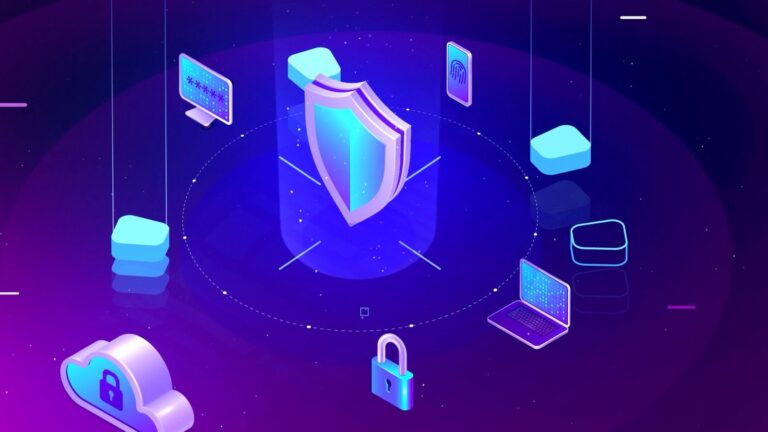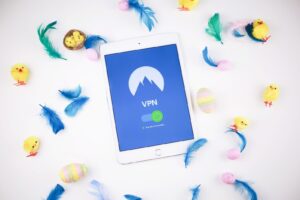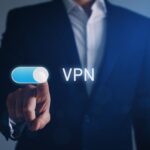If you are interested in learning more about VPNs, what they do and how do they benefit you, look no further. We have answered 41 important questions regarding VPNs.
Why do I need a VPN?
For many people, the idea of using a Virtual Private Network (VPN) seems like something only businesses or tech-savvy individuals need to worry about. However, VPNs can be useful for anyone who wants to keep their online activity private and secure, whether they’re using a public Wi-Fi network or browsing the web from their home. We’ll explain, below, some key reasons why you might need a VPN, and how a VPN can help you stay safe and secure online.

Special VPN Deal
Get VPN protection from NordVPN, one of the most reliable VPN companies in the world, for just $3.99/month!
Here are a few reasons why you might want to use a VPN service:
Stream Netflix, Amazon Prime, Disney+ from anywhere
By connecting to a VPN server in the United States, for example, you can appear to be located in the United States, which will allow you to stream all of those services.
Evade ISP tracking
If your ISP wants to throttle or otherwise monitor your connection because you’re using BitTorrent, a VPN can help you evade that.
Pretend to be in another country
A VPN allows you to access content only available in other countries, such as BBC iPlayer, without the hassle of geographical restrictions. Also, useful if you want to watch US Netflix and YouTube while traveling, or access any other regionally restricted services.
Keep prying eyes away from your data
If you’re worried about advertisers or eavesdroppers getting their hands on your browsing history, for example, you can use a VPN to keep it secure.
Prevent price discrimination
It is a known fact that companies charge different prices for the same product or service in different parts of the world. By using a VPN connection, you may be able to take advantage of appearing to be in another country and buy your desired goods at a better price than in your home country.

Special offer for our readers – 3 Months Free!
Get the best rated VPN service in the world with a special offer just for the readers of PrivacyTutor!
Secure your data over public Wi-Fi networks
A VPN will also secure your data when using public or insecure Wi-Fi wireless networks. This will prevent any malicious individuals from intercepting your data and doing bad things with it, like stealing your passwords or credit card information.
Access blocked websites
A VPN can be used to bypass Internet censorship. When connecting to a VPN server in the United States, for example, you can gain access to sites like YouTube that are normally blocked by ISP-imposed geographical blocks.
Avoid censorship, fines, and jail time
If you’re in China and want to visit blocked websites like Facebook or Google, simply connect via a VPN server outside of China. If there is no VPN available in your location, you can purchase one from another country. Doing so will provide you with an uncensored internet connection, allowing you to access the web freely.
How does a VPN work?
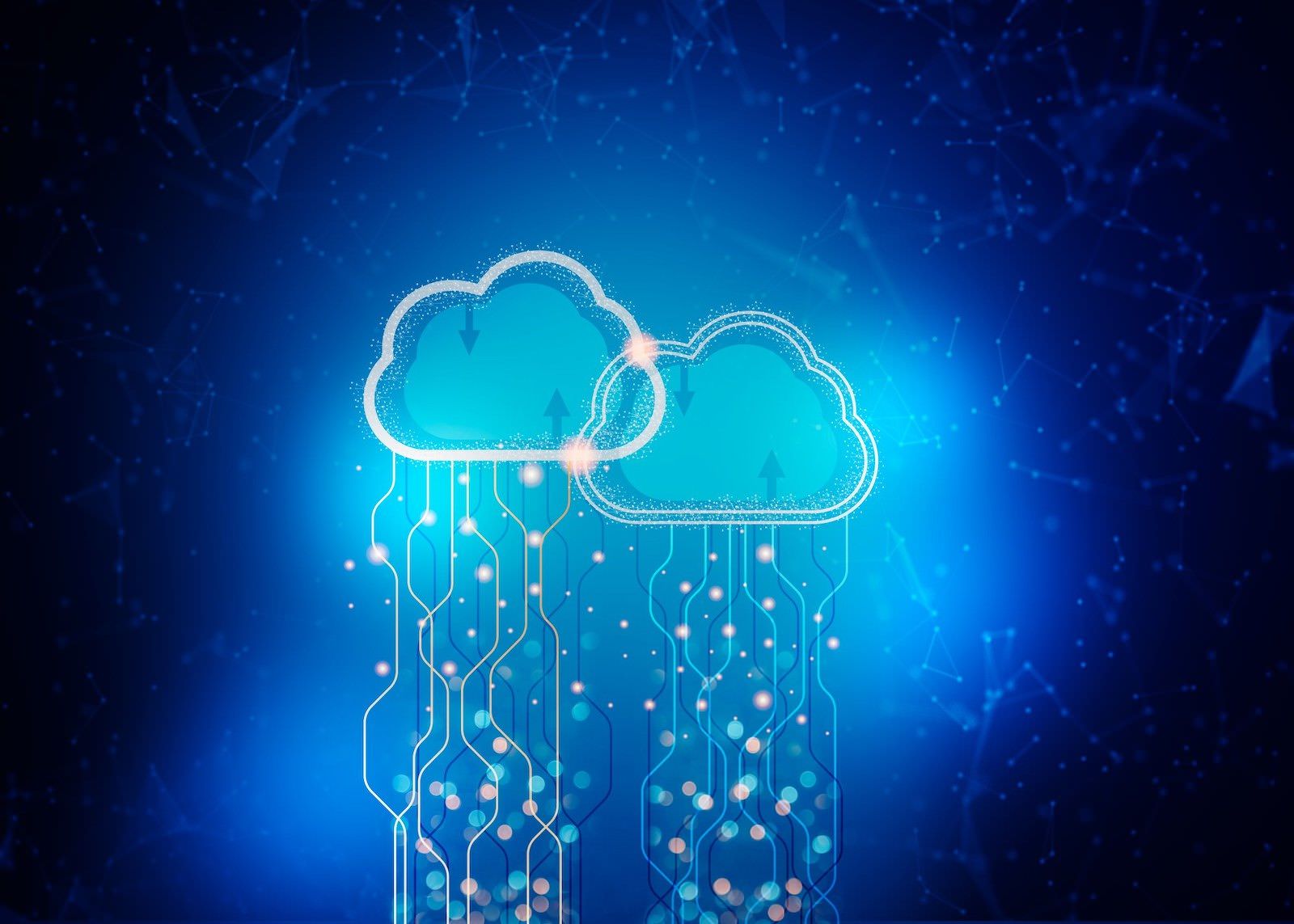
A VPN encrypts the data between your device and a server controlled by the VPN provider. This prevents people from snooping on your web traffic to see what you’re doing, even if they gain access to that traffic in transit. It also helps keep your privacy intact when you’re using an open Wi-Fi hotspot.
Is using a VPN safe?
Using a virtual private network is as safe as the websites you visit. If those sites are secure and encrypted, using a VPN isn’t going to hurt you. Because your traffic appears to come from the VPN server and not your home computer, it can help keep your browsing more secure in some cases.
Is using VPN legal?
Using VPN technology is legal in most countries worldwide. There are some sites, particularly streaming video services, that block access based on your location. But if you can get around those blocks with a VPN service—and many people do—it’s perfectly fine to use one while you travel or at home.
How can a VPN help protect against identity theft?
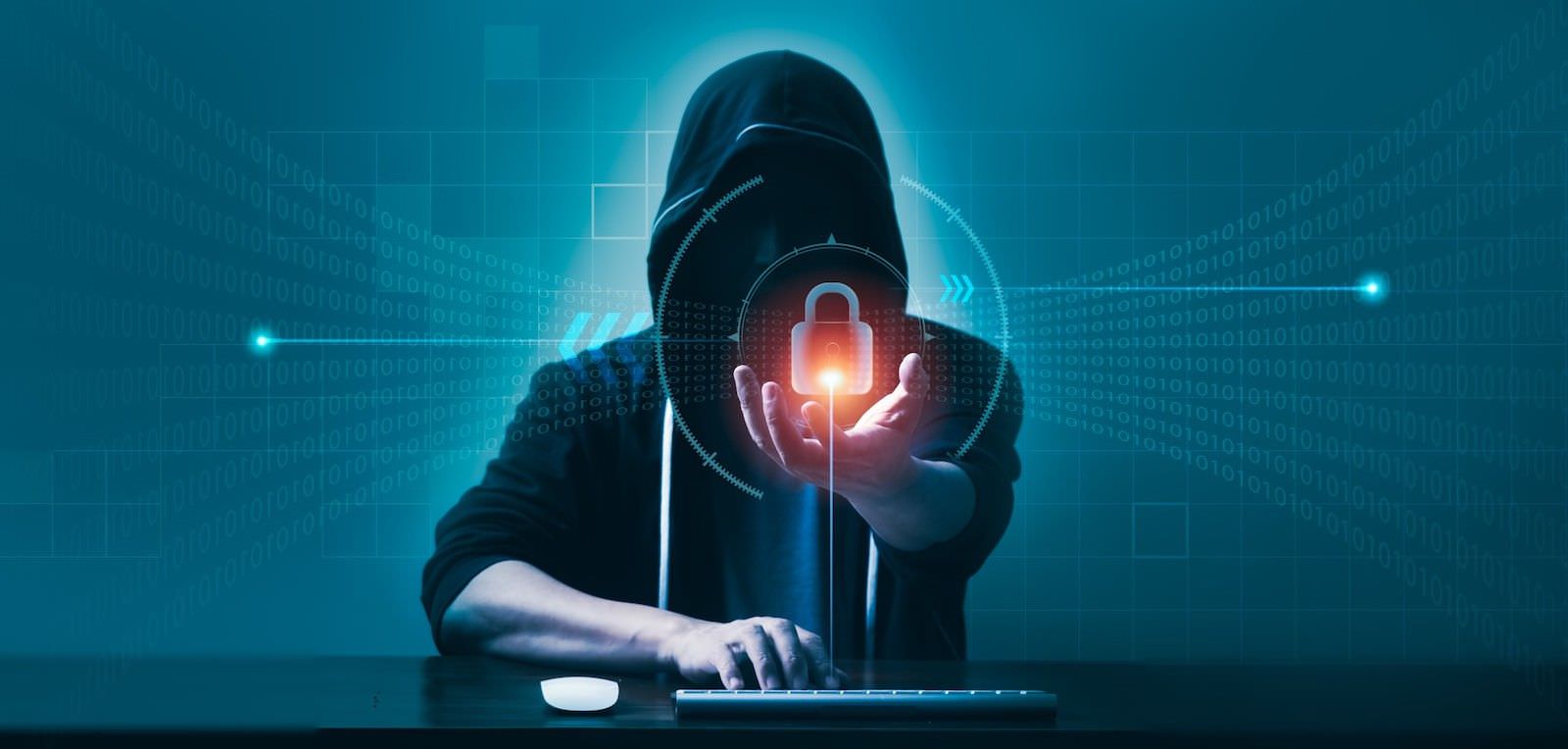
If you use public Wi-Fi networks without using a VPN, hackers can potentially steal your sensitive information. When you connect to an unsecured Wi-Fi network, your computer—and every other device on that network—send out “packets” of data. Those packets contain all kinds of information about you and your devices that an attacker could use for malicious purposes.
If you’re using a VPN, however, the only information those packets contain is information that’s useful to someone trying to connect to another server—the address of that server and some other basic info. Using a VPN helps prevent this because your computer encrypts all the data flowing between itself and the VPN server before sending it out onto the web. That means that anyone who tries to spy on your traffic will only see unintelligible characters, not the actual data they’re after.
How a VPN protects online privacy and your IP address
An IP address is a unique number that is assigned to every device that connects to the internet. Your IP address can be used to identify your computer or device, and it can also be used to track your online activity.
When you’re using a VPN, your computer’s IP address is hidden from the outside world. This means nobody can see where the traffic comes from or where it goes.Instead, they’ll only see the IP address of the VPN server.
This also helps protect your privacy. When you’re using a VPN, your traffic is encrypted and can’t be read by anyone else. That means that even if someone manages to intercept your data, they won’t be able to understand it.

Special VPN Deal
Get VPN protection from NordVPN, one of the most reliable VPN companies in the world, for just $3.99/month!
How do I set up a VPN?
Setting up a VPN connection isn’t difficult, but it does vary depending on the service you’re using. Before using a VPN provider, you first must sign up for an account with your desired VPN provider. Then, you typically download the VPN company’s custom software for your device (from Windows to Android), which configures how it encrypts and decrypts your internet traffic. In most cases, this process takes only a few minutes, and it’s pretty straightforward.
Why should you use a VPN connection?
A VPN is an essential security tool for anyone doing business or working remotely. A VPN connection provides online privacy and anonymity by making it impossible for Internet Service Providers (ISPs), hackers, or snooping government agencies to monitor your activity.
What is the importance of online privacy?

When you browse the Internet, every website you visit and every app you use knows your IP address—the web ID for the device you’re connecting from. That means that using a VPN can help prevent websites from gathering information about you based on your IP address.
Online privacy is also important because it allows people to access content online without having to censor themselves. For example, in some countries, people have been arrested for Facebook posts. In other places, governments ban sites like Wikileaks and certain news organizations from being accessed.
What is VPN encryption?
VPN encryption is a process that helps protect your data when you’re using a VPN. When you’re connected to a virtual private network server, your data is encrypted before it’s sent out onto the web.
VPN encryption also helps protect your privacy. When you’re using a VPN, your traffic is encrypted and can’t be read by anyone else. That means that even if someone manages to intercept your data, they won’t be able to understand it.

Special offer for our readers – 3 Months Free!
Get the best rated VPN service in the world with a special offer just for the readers of PrivacyTutor!
What limitations do VPNs have?
Using a VPN can help protect your data when you’re using an unsecured Internet connection, but it isn’t foolproof.
For one, if you use your web browser without connecting to a VPN first, then the website you visit will see your IP address—which can be used to gather information about you.
Second, even if you do connect to a VPN, your web activity might still be visible through browser extensions and cookies.
Finally, your web browsing experience will be bumpy every so often. Depending on the quality of your VPN provider, some websites will recognize that you are using a VPN, and they will either fail to work for you or you will have to prove that you are an actual person.

The Best VPN Deal You Can Find Anywhere!
Get a VPN that lets you use an unlimited number of devices, offers amazing security features and has an unbeatable offer!
82% off + 2 Months Free
- Unlimited Devices
- Ad & malware blocker
- Cookie pop-up blocker
- Two-Factor Authentication
- 24/7 support
- $2.49/Month!
What is the difference between proxy servers and VPNs?
When you use a website or app that’s blocked in your country, two things can happen. First, you can try to visit the website or download the app again and hope it isn’t blocked. Otherwise, your second option is to use a proxy server.
Proxy servers act as an intermediary between you and the website you’re trying to access—they hide your IP address by masking it with their own. However, proxy servers can be unreliable and slow.
VPNs are more sophisticated than proxy servers—they encrypt data sent over the Internet so that no one else can see it. VPNs also let you hide your IP address because they act as a tunnel between two computers—the computer you’re using to access the web (which has your real IP address), and the virtual private network server, which masks your IP address.
Does a VPN slow down your internet connection?

In general, VPNs will always slow down your internet connection but in most cases, the speed reduction is not noticeable. This again depends on the quality of your VPN provider. If the VPN company has numerous servers, and you are very close to one of their servers, you may not notice a reduction in your internet speed.
However, if your VPN company does not have enough servers, or if they have too many customers and the servers are always overcrowded, you will notice a slower internet speed, or you may even disconnect from the VPN service altogether.
Why is it important to hide your IP address?
When you use the Internet, every device connected to a network has a unique address—an internet protocol (IP) address. Your IP address is most useful to advertisers and websites because it helps them determine where you’re located in the world—and sometimes what your interests are.
For example, if someone from France visits a website that displays ads for French train tickets, the website might see their IP address and save it so that when they return to the site, it will display ads for French rail passes.
However, not everyone likes this personalization of advertisements—some people prefer to remain anonymous. To protect your privacy on the web, you can hide your IP address with a VPN service that uses shared IP addresses.
What is a shared IP address?
A shared IP address means that several users are assigned the same IP address at the same time—this prevents websites from tracking your location and interests.
If you’re concerned about your online privacy, consider using a VPN service with shared IP addresses to hide your identity and prevent third parties from gathering your web browsing information.
What should you look for in VPN services?
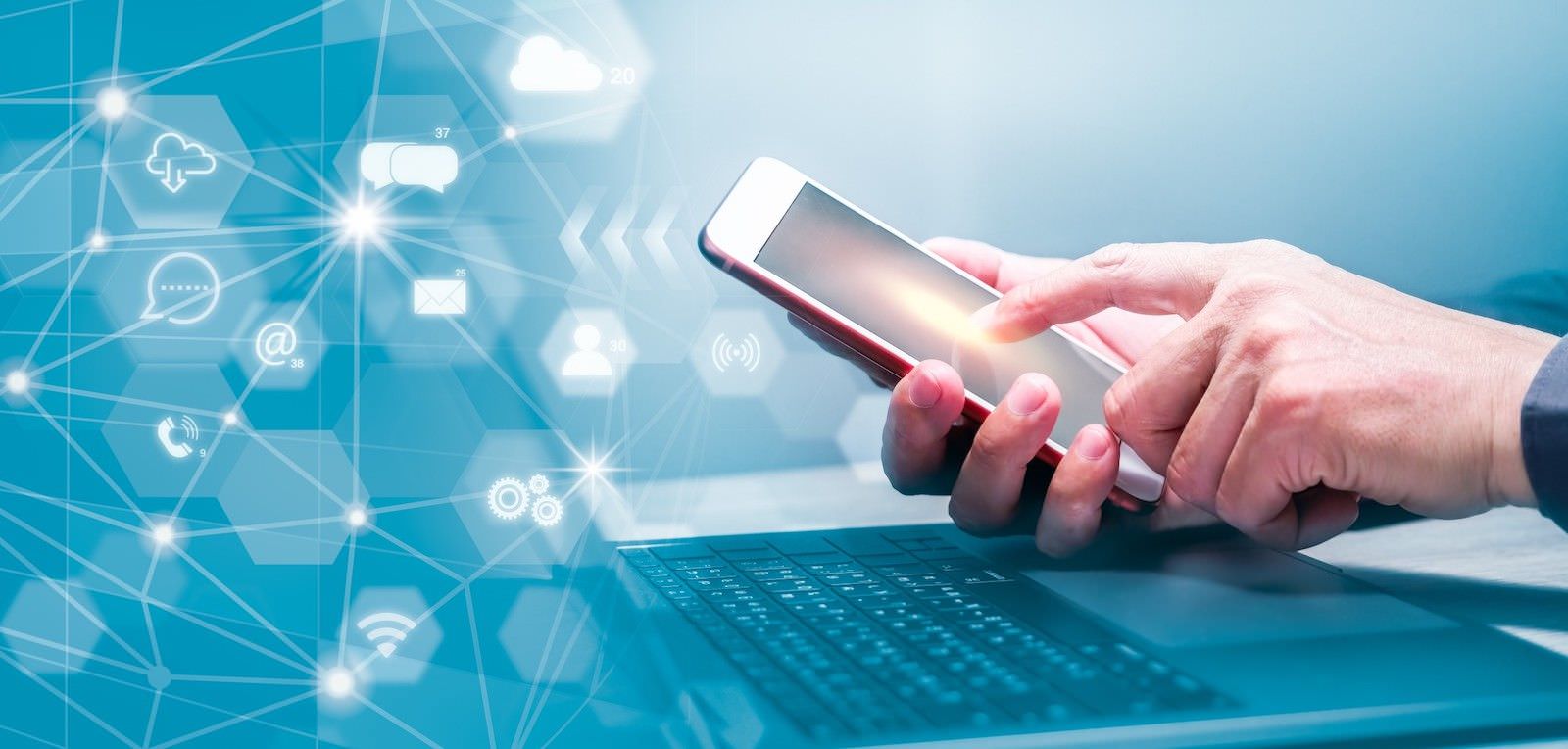
It’s important to find VPN services that offer the features you need at a price you can afford. Here are some suggestions:
Price
Of course, you want to avoid paying more than you have to for your VPN provider. However, when it comes to pricing, many people get tricked into thinking that free is always the best choice. While some free VPN services won’t cost you a cent, they often offer poor performance and could potentially spy on your online activities.
Reliability
You also want to find a reliable VPN provider because unreliable ones tend to cut out, slow down your connection and fail to provide the security needed for an effective VPN service.
Server location
The best VPN services will have servers in the countries or regions that you want to connect with. For example, if your goal is to stream videos from US websites, then a VPN service with US servers will increase your chances of success. Be aware that some companies are starting to offer servers in areas that are popular for streaming videos, such as the US and Europe. However, these servers often have limited bandwidth—so you’ll want to prioritize them in your VPN client if you expect to watch a lot of video with your VPN provider.
Bandwidth caps
Make sure any VPN service you choose offers unlimited bandwidth, so you won’t have to worry about overage charges. If you stream video or download large files, unlimited bandwidth is important for ensuring your connection speed stays high when other users in the area are also using the service.
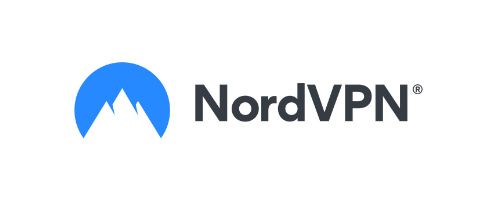
NordVPN Special Deal
Get VPN protection from NordVPN, one of the most reliable VPN companies in the world, for just $3.99/month!
✅ Possibly, the best Double VPN implementation.
✅ Over 5000 servers in 60 countries.
✅ VPN split tunneling support.
Compatibility with devices
To get the most out of your VPN service, make sure it works on all the devices you want to use with it. For example, if you want to watch videos on your tablet or phone when you’re not using your computer, make sure you know which VPN services work with those devices before signing up.
Customer support
If something goes wrong while you’re using a VPN service, good customer support can be the difference between getting your problem solved quickly or having to wait days or weeks for a reply. Look for VPN providers that offer multiple ways of contacting customer support, such as live chat, phone, and email.
Privacy policy
While it might not be enough to completely sway your decision, you should still make sure the VPN service you choose has a clear and transparent privacy policy. If the service doesn’t say how it uses your data, then you should assume the worst—even if they claim to keep no logs or offer anonymous payment methods like Bitcoin.
Geo-blocking capabilities
If you’re hoping to access US media sites like Hulu and CBS All Access when you’re in another country, make sure your VPN service has the servers needed for bypassing geo-blocks. Express VPN, NordVPN, and Buffered are some services that offer these capabilities.

Special VPN Deal
Get VPN protection from NordVPN, one of the most reliable VPN companies in the world, for just $3.99/month!
How can you tell if a VPN is working?
The easiest way to determine whether your VPN service is working correctly is by testing it out. Here are some steps you can take:
When you connect to a VPN, your computer acts as though it’s located in the location of the server. So if your VPN provider has a US server, and you visit Google.com, it should load as though you were physically located in the US and connected directly to Google—not through an Australian, British or French server.
To test out how well your VPN service works, visit speedtest.net and run a quick test to check your connection speed without the VPN enabled (located on the homepage). Then connect to the US server of your choice and run another test to compare your results with those located on the speedtest.net homepage. This will tell you how much your connection speed drops when using a VPN service.
You can also test out different servers to see which ones perform best for certain activities like streaming videos or downloading files. For example, if you want to stream content from US websites, try connecting to different servers to gauge which ones provide the most success.
How to choose a VPN service
The best way to determine which VPN provider you should use is by asking yourself what your goals are. Do you want a VPN for streaming videos? Are you planning on using your computer or mobile device when traveling outside the country? How much privacy and security do you need?
Some VPN services offer additional features that can be helpful when deciding which one to use. For example, you can purchase a static IP from some providers for a slightly higher rate. This way, you’ll always have a dedicated IP that’s not shared with other users or devices—making it ideal for accessing online games or streaming video services that don’t offer their own dedicated IPs.
You may also want to check out a VPN’s Kill Switch feature. This allows you to select the apps and programs that get cut off from accessing the web when your VPN disconnects—in case your computer or device gets disconnected from the VPN without your knowledge.
What is a VPN protocol?

A VPN protocol is a technology used to encrypt and encapsulate all of your data as it travels from one device to another.
Each VPN protocol has its pros and cons, so choosing the best one all depends on what you want out of your service and what devices you’ll use it on. Here’s a brief description of each VPN protocol:
IKEv2
IKEv2 is a reliable protocol that securely combines the IPsec protocol to provide a secure environment. Like OpenVPN, IKEv2 uses encrypted data with 256 bits, which provides fast connectivity. The newest version of IKEv2 is very popular in mobiles because it allows users to quickly switch between wireless networks.
OpenVPN
It’s renowned for its reliability, speed, and privacy – OpenVPN is a renowned protocol in the world. As an open-source protocol, the source code can be easily verified. If exploits are discovered, developers can address them quickly. VPN connections using open-sourced code can also be verified if the developers have not done any suspicious behavior on their part.
L2TP
L2TP is the second layer of Tunneling Protocol developed in partnership with Cisco. Responsible for setting the VPN connection, L2TP uses IPsec as its main protection layer to ensure a secure connection to the Internet.
PPTP
Point-to-Point Tunneling is an obsolete and much less safe protocol that is also used in free VPN services. Although, PPTP has many security flaws and needs to be avoided if you are attempting an encrypted connection.
Here’s how to browse the web securely with a VPN
Use a High-quality VPN Service
As with any online service, you need to be cautious when signing up for a VPN. Not all services are created equal—and some small-time companies will put your data at risk instead of protecting it.
You should look for a reputable service that maintains AES-256 encryption and a no-logging policy.
Verify You’re Connected with Valid IP Information
Make sure you have their VPN software installed on all of your devices once you’ve been signed up for the service. Then, after you’ve verified that your software is up-to-date, turn on and maintain each application on your devices.
Never Keep Your VPN On the Same Connection for a Long period of time
If you want to improve your privacy, connect to different servers that are near to you and don’t spend too much time on one server. Simply put, if you only use one server, most of the internet trackers will detect who you are and start identifying you based on your new IP address.
Think of the VPN servers as new locales. If you change your location, there’s a chance that your privacy can be improved this way.
A short history of VPNs
VPNs were first introduced as a simple yet effective way to improve security and privacy in the network. They became popular via dial-up connections during the 1990s, and they remain a great option today.
The VPN protocol emerged within a time window between 1993 and 1994, finally gaining momentum by 1995. The design goal of most VPNs was to create a tunnel between the user and the provider of the requested resource, often for applications such as telecommuting.
In 1996, several major VPN protocols appeared: Point-to-Point Tunneling Protocol (PPTP), Layer 2 Forwarding (L2F), and IP Security protocol (IPsec).
Early VPNs operated in the broadband era. The fast Internet speeds of that era were ideal to provide high bandwidth and security for the user.
However, the introduction of mobile devices created a new kind of networking environment. In this mobile era, different requirements are applied to mobile security as opposed to broadband security. For example, in mobile networks, the cost of bandwidth is often high, so it’s much more efficient to encrypt packets rather than send them without any protection at all. On the other hand, mobile devices such as smartphones and tablets are generally more vulnerable to security breaches than PCs.
With many companies now offering VPN services, there’s a large variety of options to choose from.
This makes the selection process much more critical as you need to take into consideration many aspects, such as encryption type and protocol, available locations, level of privacy, logging policy, compatibility with your devices or OS, etc.
Is a VPN necessary?
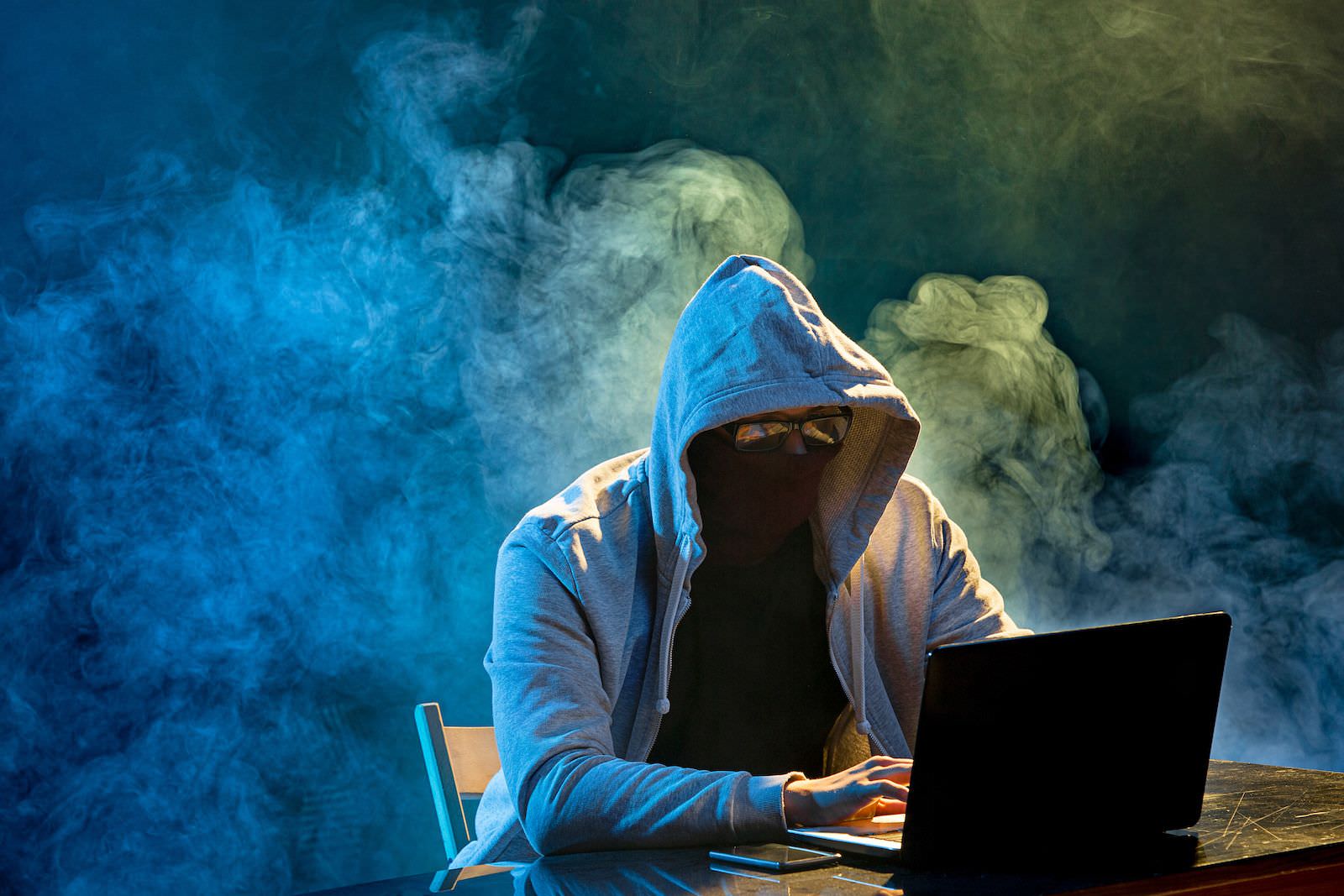
Today, many people are asking whether they need to use a VPN or not. The answer is yes, it’s becoming more critical every day as the threats of Internet surveillance increase.
You don’t have to be an experienced computer user to understand how important online privacy is, and you should never underestimate the power of hackers who might steal your personal information just because they can.
Even if you don’t think anyone is interested in your identity and location, using a VPN might be the best way to protect yourself in this kind of environment.
A VPN acts as an invisibility cloak for your online traffic, and no one can determine what you’re doing over the Internet — not even hackers or spies.
Can I trust VPN providers?
Yes, you can trust some VPN providers but not others. The security of a particular service depends on who is running it and what they are doing with your data.
Some VPN providers offer excellent security measures, so you should choose them carefully when selecting the appropriate one for your needs, especially when dealing with free VPNs.
Free services are not necessarily less secure, but you should be careful with your data to avoid nasty surprises in the future. Many free services indeed monetize their users’ data, so it’s important to know exactly what kind of VPN provider you’re dealing with before trusting them with your private info.

The Best VPN Deal You Can Find Anywhere!
Get a VPN that lets you use an unlimited number of devices, offers amazing security features and has an unbeatable offer!
82% off + 2 Months Free
- Unlimited Devices
- Ad & malware blocker
- Cookie pop-up blocker
- Two-Factor Authentication
- 24/7 support
- $2.49/Month!
What does a VPN hide?
For those who need additional information on VPNs and how they work under the hood, are some clarifications:
Your IP address
This is your unique identifier on the Internet, like your street address. When you install VPN software, it assigns you a new IP address that makes it look as if you’re in a different location.
Your ISP (Internet Service Provider)
This is the company you pay for Internet access, like AT&T or Verizon. Their job is to provide Internet service for everyone who pays them, but that doesn’t mean they can snoop on your online activities whenever they want without any consequences.
Your browsing history
When you visit a website, the ISP can see all kinds of information related to that visit. They can tell who you are based on your IP address, but they might also have access to the exact web pages you’re visiting and when.
Your location and origins
Your ISP knows where you’re located and every website you visit. It’s like a map of your online movements that can be combined with other forms of information to create a detailed profile about who you are, what you do online, and how much money you make (if using an ad-supported service or shopping for specific products).

Special offer for our readers – 3 Months Free!
Get the best rated VPN service in the world with a special offer just for the readers of PrivacyTutor!
Can you still be tracked when using a VPN?
It depends on which side you’re looking at the matter. At first glance, a VPN provides anonymity and security regardless of your online activities because it changes your IP address to make it look like you’re in a different location.
Your ISP can’t see your browsing history or track your movements on the Internet when connected to a VPN, but they can see your VPN IP address, which might not be ideal.
On the other hand, you’re hiding your real IP address with a fake one provided by the VPN, so it’s easy to track you down if they want to or suspect you of some illegal activity. The only way around this is to pay for a premium service with additional security features that keeps your traffic encrypted.
Why you shouldn’t use a VPN?
VPN providers are doing their best to protect users’ privacy, but some services might not be trustworthy at all. There have indeed been rumors about free services being operated by shady companies or even scammers who sell user data to the highest bidder.
If you don’t pay for a VPN service, you’re giving your ISP complete freedom to monitor your online activities. If you don’t trust them already, this should be reason enough to open your wallet and pay for a premium service that keeps your connection secure at all times.
VPN tracking is becoming easier every year thanks to the continued advancement of technologies like Deep Packet Inspection (DPI), which enables ISPs to see what kind of packets are coming and going from your network without compromising your browsing history.
Even if the chance of getting tracked is low, there’s no such thing as a 100% secure connection, except when using end-to-end encryption (E2EE) such as OpenVPN (which might be hard to set up for casual users).

Special offer for our readers – 3 Months Free!
Get the best rated VPN service in the world with a special offer just for the readers of PrivacyTutor!
Does VPN work on Wi-Fi?
A VPN connection will work especially well on a Wi-Fi connection because you will not notice speed loss. Some people and companies install their VPN service on Wi-Fi routers, so anyone connected to the Wi-Fi network can benefit.
Are VPNs 100% effective?
No, there isn’t such a thing as 100% security and privacy unless you’re using E2EE (end-to-end encryption). Even with extra features like having a kill switch option and protecting your traffic with multiple encryption protocols, you’re still not 100% secure.
How can you tell if someone is using a VPN?
If someone is using a VPN, you can’t tell by just looking at their IP address. They might just as well belong to Google or Amazon and be logged into their websites with an account associated with that IP address.
What is the difference between a VPN and a private network??
VPN stands for Virtual Private Network and is much like a private network in terms of privacy. With both, you get to use the Internet without sharing your personal information with anyone else who might be interested in stealing it (hackers, advertisers, etc.).
Do I need a VPN on a private network?
You don’t need a VPN when using your device on a private network. The traffic between you and the router is encrypted by default, which makes it safe from hackers, who can’t access your data packets or request any sensitive information about you or your passwords.
What security does a VPN give?
When using a VPN, the data packets traveling between you and the website you’re visiting are encrypted. Even your ISP can’t see what websites you visit or what kind of data you transfer online without decrypting it first.
Does a VPN increase internet security?
Yes, a VPN can increase internet security by using encrypted connections over the Internet. With a VPN, hackers and ISPs can’t see your traffic moving across the network.
How is VPN different from TOR Browser?
VPN masks your IP address with another one provided by the VPN company, while TOR encrypts all of your traffic and sends it through multiple servers to make it untraceable. With both, you get to use the Internet without disclosing your private information.
Is VPN an Internet provider?
An internet provider is a company that provides internet access to its customers. They usually have access to their customer’s browsing history and usage patterns and much more.
A VPN, on the other hand, will encrypt your internet traffic and in most cases hide it from your internet provider (ISP) thus improving the privacy and anonymity of the user.
What happens when I am connected to a VPN?
When you connect to a VPN, there are usually two possible situations.
The first one is that the VPN server will mask your original IP address with one belonging to their server, thus making it harder for others to track you down across the web.
The second case occurs when you choose or are assigned an IP address from another country, thus allowing you to appear as if you are physically located there. This makes bypassing content restrictions much easier.
Which devices support VPN?
Most devices can support a VPN connection, whether it be desktop computers or mobile phones.
To make sure your device is compatible with VPN, check out the list of supported OSes and hardware on the provider’s website.
Is it free to use a VPN?
Some VPNs are free to use, but nothing is truly free, and this includes VPN services. If a company does not charge you anything to use their service, it’s probably because they are using other methods to generate revenue. The easiest way is by selling your browsing history and other personal data collected while you’re logged in.
Who needs a VPN?
Anyone who believes that online privacy should be taken seriously should have a VPN.
If you want to protect yourself from government spying, a virtual private network is a must. If you’re worried that your sensitive data might fall into the wrong hands when shopping or surfing online, then you should use some form of protection just to be safe.
Does VPN mean free internet?
No. A VPN is not about getting free access to websites and services, but it’s about privacy and anonymity online.
What is a VPN app for?
A VPN app is software that you download and install on your device to encrypt all the data coming from your computer or smartphone.
VPN apps can also be used to change your virtual location by routing your traffic through different servers around the world, making it seem like you’re in a different country.
VPN glossary
This glossary provides a basic understanding of the VPN topic, and it includes an overview of common terms related to the VPN industry.
VPN
A VPN, or virtual private network, is a technology that allows you to create a secure connection between your device and a server. This secure connection can be used to encrypt your traffic and hide it from your ISP, making your online activities more private and anonymous.
ISP
An internet service provider (ISP) is a company that provides individuals and businesses access to the internet. ISPs offer a variety of services, including high-speed broadband, voice over IP, and cellular phone service.
PPTP
PPTP Point-to-Point Tunneling Protocol is a common VPN protocol that enables data transfer over the Internet. In cases of an insecure network, it can provide a secure connection to any device with support for this type of tunneling. PPTP uses 128-bit encryption and provides strong security by using strong authentication and hashing algorithms.
Geo-restrictions
Geo-restrictions are limitations placed on content by a website or service based on a user’s geographic location. This can include blocking access to certain websites or streaming services based on a user’s country or region.
Censorship
Online censorship is the control or suppression of speech, writing, videos, pictures, and other types of media that are published on the internet. This can include the blocking of websites, removal of content, or slowing down internet speeds.
VPN Encryption
VPN encryption is a technique used to protect data that is sent between a user and a virtual private network server. This data is typically encrypted using strong algorithms to make it difficult for unauthorized individuals to access.
AES encryption
AES encryption is a type of symmetric-key cryptography that is used to protect data. It uses a strong algorithm to encrypt data, making it difficult for unauthorized individuals to access.
Browser history
The browser history is a list of websites that have been visited by a user using a web browser. This list can be accessed by the user or by websites that are visited using cookies.
Online safety
Online safety refers to the measures taken to protect a user’s online privacy and security. This can include using a VPN, strong passwords, antivirus software, and malware protection. It can also include being careful about what information is shared online and avoiding suspicious websites.
Online privacy
Online privacy is the ability to control the information that is shared about oneself online. This includes the ability to keep personal information private, choose who can see one’s profile, and limit the amount of information that is shared. It also includes the ability to protect one’s online identity and prevent others from tracking one’s activities online.

NordVPN Special Deal
Get VPN protection from NordVPN, one of the most reliable VPN companies in the world, for just $3.99/month!
✅ Possibly, the best Double VPN implementation.
✅ Over 5000 servers in 60 countries.
✅ VPN split tunneling support.
VPN Tunnel
A VPN tunnel is a virtual connection that is created between two devices using a VPN server. This tunnel is used to encrypt all the data that is sent between the devices, making it difficult for unauthorized individuals to access. The tunnel can also be used to change a user’s virtual location by routing their traffic through different servers around the world.
VPN Server
A VPN server is a computer that is used to create a virtual private network connection between two devices. This server is used to encrypt all the data that is sent between the devices, making it difficult for unauthorized individuals to access. The server can also be used to change a user’s virtual location by routing their traffic through different servers around the world.
Final Words
A VPN, or virtual private network, is a service that allows you to connect to the internet through a server located in a different country.
This can be useful for bypassing geo-restrictions and censorship, as well as protecting your online privacy and security. In this article, we have introduced you to the basics of VPNs and explained some of the benefits that they offer.
We have also provided a glossary of terms related to VPNs so that you can better understand this technology. We hope this information will be useful and help you make better decisions regarding your internet usage.

